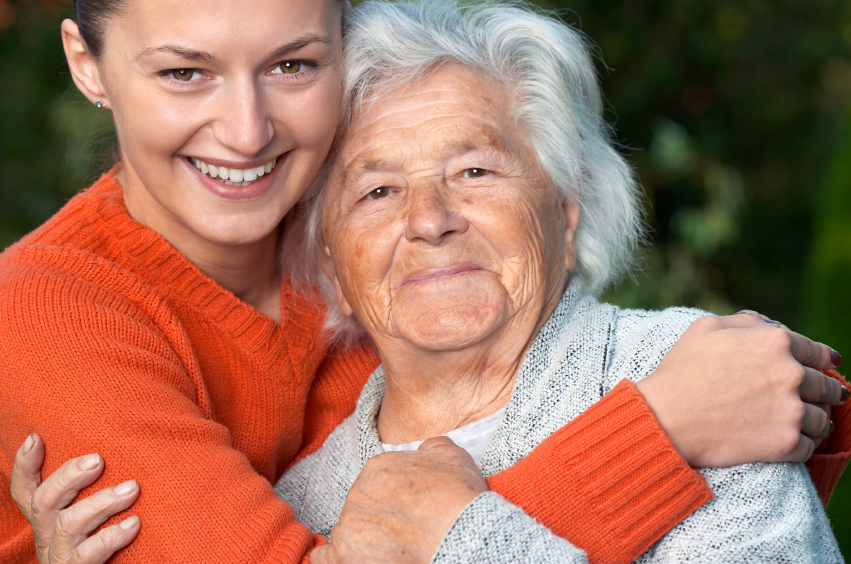 Today’s older generations have lived through wars and hard times, experienced the development of technology from its premature stages, and they have been the driving force behind a cultural revolution striving for an equal society. Many seniors are also becoming more active in their communities, making significant contributions through civic and volunteer actions.
Today’s older generations have lived through wars and hard times, experienced the development of technology from its premature stages, and they have been the driving force behind a cultural revolution striving for an equal society. Many seniors are also becoming more active in their communities, making significant contributions through civic and volunteer actions.
These older generations are certainly worthy of our praise and admiration. Growing older, however, also has its downsides. Elder abuse is a growing problem and every year, it’s estimated that more than 2 million senior Americans fall victims to abuse.
Elder abuse is an under‐recognized problem with devastating and even life‐threatening consequences. June 15th, 2011 marks the 6th Annual World Elder Abuse Awareness Day. This day is a perfect opportunity to commit to raising awareness to help end elder abuse, neglect, and exploitation.
What is Elder Abuse?
Elder abuse can be defined as any knowing, intentional, or negligent act by a caregiver or any other person that harms or poses a serious risk of harm to an older adult. Physical abuse; neglect; emotional or psychological abuse; verbal abuse and threats; financial abuse and exploitation; sexual abuse; and abandonment are considered forms of elder abuse.
How big is the problem?
Elder abuse, like domestic violence and child abuse, is a public health crisis that crosses all socio-economic lines. No one knows for certain because relatively few cases are identified. Research indicates that more than one in ten elder may experience some type of abuse, but only one in five cases or fewer are reported. This means that very few seniors who have been abused get the help they need.
Domestic, institutional, and self-neglect are the three most frequent types of abuse in later life. The vast majority of elder-abuse cases involve female victims, and about 7percent of the assaults occur in the victim’s home.
Both men and women may become abusers. In about 90 percent of cases, the offender is a family member, usually financially dependent on the elderly and often having alcohol and/or drug problems. Although grown-up children may have a tendency to financially exploit their elder parents, spouses are the most common perpetrators of abuse in later life.
Warning Signs of Elder Abuse
- Physical Abuse ‐ Slap marks, unexplained bruises, most pressure marks, and certain types of burns or blisters, such as cigarette burns
- Neglect ‐ Pressure ulcers, filth, lack of medical care, malnutrition or dehydration
- Emotional Abuse ‐ Withdrawal from normal activities, unexplained changes in alertness, or other unusual behavioral changes
- Sexual Abuse ‐ Bruises around the breasts or genital area and unexplained sexually transmitted diseases
- Financial Abuse/Exploitation ‐ Sudden change in finances and accounts, altered wills and trusts, unusual bank withdrawals, checks written as “loans” or “gifts,” and loss of property
What Can I Do to Prevent Elder Abuse?
- Report suspected mistreatment – to your local adult protective services agency or law enforcement. Although a situation may have already been investigated, if you believe circumstances are getting worse, continue to speak out.
- Keep in contact – Talk with your older friends, neighbors, and relatives. Maintaining communication will help decrease isolation, a risk factor for mistreatment. It will also give them a chance to talk about any problems they may be experiencing.
- Be aware of the possibility of abuse – Look around and take note of what may be happening with your older neighbors and acquaintances. Do they seem lately to be withdrawn, nervous, fearful, sad, or anxious, especially around certain people, when they have not seemed so in the past?
- Volunteer – There are many local opportunities to become involved in programs that provide assistance and support for seniors.
- Learn more about the issue ‐ Visit the National Center on Elder Abuse website at www.ncea.aoa.gov.
Visit http://www.ncea.aoa.gov/ncearoot/Main_Site/index.aspx for more information on elder abuse.
If you or someone you know is in an abusive relationship, Hubbard House can help. Please call the Hubbard House domestic violence hotline at (904) 354-3114 or (800) 500-1119.
ABOUT HUBBARD HOUSE
Founded in 1976, Hubbard House is a certified, comprehensive domestic violence center providing programs and services to more than 5,000 women, children and men annually in Duval and Baker counties. While Hubbard House is most known for its emergency shelter, the agency also provides extensive adult and youth outreach services, school-based education, therapeutic child care, batterers’ intervention programs, court advocacy and volunteer and community education opportunities. Visit www.hubbardhouse.org to learn more.
